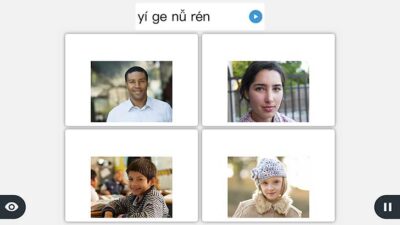
Rosetta Stone incorporates practising Mandarin pronunciations into every lesson with a patented speech recognition engine called TruAccent. The key to successful language learning programs is to focus not on vocabulary acquisition and memorisation, but on pronunciation and opportunities to practise speaking Chinese. Because English is not tonal, this component of Chinese pronunciation may be a bit trickier for beginning language learners. You’ll hear that while some words are made up of the same sounds, the pitch with which you pronounce them conveys the meaning. To master the tones, language-learning experts suggest paying close attention to Mandarin pronunciations and trying to mimic them. These tones include a level tone ( ping), a rising tone ( shang), a departing tone ( qu), and a final tone ( ru). Mandarin has four main tones which are “stress-timed,” meaning the stressed syllables in a word are pronounced at regular intervals. Learning and practising tones should be one of the first things you do as you being your language learning journey before you start trying to memorise Mandarin words and vocabulary lists.

One of the critical aspects of learning Chinese is that it is a tonal language, which means the inflection of your tone and pronunciation of the words communicates meaning. Because these bite-sized lessons sync across all your devices, you’ll be able to learn Chinese anytime, anywhere and pick up exactly where you left off. These common conversational phrases are coupled with visual and audio cues to help you recognise and recall the words as well as opportunities to practise and review phrases until you feel confident. Rosetta Stone offers bite-sized lessons that introduce you to common Mandarin phrases you might need to order in a restaurant or to greet someone in a shop. One of the best ways to introduce yourself to speaking Chinese Mandarin is to begin with some conversational phrases taught in the context of real-world situations. For instance, “wǒ bù dǒng” means “I don’t understand” in Mandarin where “wǒ” is “I,” “bù” is “don’t,” and “dǒng” is “understand.” While you can’t always count on a word for word translation that you’ll understand, many simple Mandarin sentences do in fact follow this basic grammatical rule. Simple sentences are built beginning with a subject followed by a verb and then an object, much the same way sentences in English are structured.

In Mandarin Chinese, most sentences follow a structure that will look familiar to English speakers. Mandarin is also straightforward in that it does not contain gendered or singular versus plural nouns. The Chinese writing system may be challenging, but spoken Mandarin does have several things in common with English, including quite a few elements of grammar and sentence structure. While some language learners may have concerns about the difficulty of learning Chinese Mandarin, we’re here to put those to rest. That’s why our language learning programs are built to scale naturally from simple, frequently used conversational phrases in context to more complex components of the Chinese language like verb conjugation and the characters of the simplified writing system. With over twenty-five years of building successful, award-winning language learning programs and apps, Rosetta Stone understands that learning Chinese is about the journey towards understanding and speaking the language. Online programs and apps that promise you can learn Chinese in a few minutes a day sound enticing, but it’s hard to develop confidence in the language unless you get beyond vocabulary acquisition and focus on all the aspects of language learning like Chinese grammar and writing. If you want to learn Chinese, it’s essential to choose a language program that scales gradually towards understanding and builds confidence in speaking Chinese. China has the second-largest economy in the world, and Mandarin Chinese is its official language.

Although some people in China and across Asia speak Cantonese, the majority of Chinese speakers (about one billion) speak Mandarin. Chinese is the most spoken language in the world, with roughly 1.2 billion native speakers. And there are lots of reasons why learning to speak Chinese, specifically Mandarin Chinese, is worth the commitment. With the right approach, learning Chinese doesn’t have to be overwhelming. If you’ve hesitated to learn Chinese because you’ve heard it’s difficult, take heart.


 0 kommentar(er)
0 kommentar(er)
